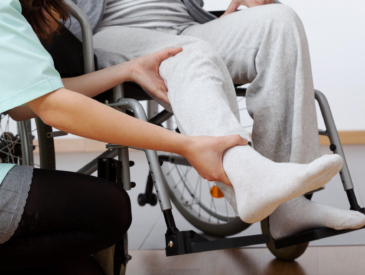Gastroenteritis, often called the “stomach flu,” is a common condition caused by the inflammation of the stomach and intestines. It can affect anyone, leading to unpleasant symptoms such as diarrhea, vomiting, and abdominal cramps.
In this article, we’ll explore WellHealthOrganic.com: key signs of gastroenteritis, how to identify the condition early, and ways to manage it effectively.
Staying informed will help you address the illness promptly and avoid complications.
What is Gastroenteritis?

Gastroenteritis is an infection or irritation of the gastrointestinal tract caused by viruses, bacteria, or parasites.
It can spread through contaminated food, water, or contact with an infected person.
While the condition is typically not life-threatening, recognizing the symptoms early is essential to prevent dehydration and faster recovery.
Read More: Acibadem Health Point Knee Replacement
Key Signs of Gastroenteritis
1. Diarrhea
One of the most common signs of gastroenteritis is frequent, loose, or watery stools. Diarrhea occurs as the intestines fail to absorb fluids properly due to inflammation, resulting in increased bowel movements.
- Duration: Diarrhea may last anywhere from a few days to a week.
- Risk: Prolonged diarrhea can cause dehydration, especially in young children and older adults.
2. Vomiting and Nausea
Patients with gastroenteritis often experience vomiting and nausea. This happens as the body tries to expel the infectious agent or toxin causing the illness.
- Frequency: Vomiting may be frequent, leading to a loss of essential fluids and electrolytes.
- Tip: Rehydrate with oral rehydration solutions (ORS) to restore lost electrolytes.
3. Abdominal Pain and Cramps
Stomach cramps and pain are typical signs of gastroenteritis, resulting from muscle contractions in the stomach and intestines. Depending on the severity of the infection, the pain can be mild to severe.
- Location: Pain is often felt in the lower abdomen.
- Management: Over-the-counter pain relievers may help alleviate cramps, but consult a doctor if the pain becomes unbearable.
4. Fever
A low-grade fever is a common sign of viral gastroenteritis. The fever occurs as the body responds to the infection.
- Normal Range: Typically, the fever stays below 101°F (38.5°C).
Note: If the fever exceeds this range, it may indicate a bacterial infection that requires medical attention.
5. Fatigue and Weakness
Due to fluid loss and nutrient depletion, individuals with gastroenteritis often feel tired and weak. The body uses a lot of energy to fight off the infection, fatiguing patients.
- Recovery Time: Fatigue may linger for a few days even after other symptoms improve.
Tip: Rest and proper hydration are crucial for recovery.
Read More: Wellhealthorganic Home Remedies Tag: Natural Cures for Everyday Ailments
How to Manage Gastroenteritis Effectively
1. Stay Hydrated
The most critical aspect of managing gastroenteritis is preventing dehydration. To replenish lost fluids, drink plenty of water, ORS, coconut water, or clear broths.
2. Follow a BRAT Diet
During recovery, follow a BRAT diet—bananas, Rice, Applesauce, and Toast—because these foods are easy on the stomach and help reduce diarrhea.
3. Avoid Dairy, Caffeine, and Spicy Foods
These foods can irritate the stomach further and worsen symptoms. Stick to bland foods until you fully recover.
4. Use Over-the-Counter Medications
In some cases, anti-diarrheal medications like loperamide can help manage symptoms.
Paracetamol or ibuprofen can also reduce fever and pain. Always consult with a doctor before taking medication, especially for children or elderly patients.
Read More: Wellhealth Ayurvedic Health Tips: Embrace Wellness Naturally
When to See a Doctor
While gastroenteritis typically resolves on its own within a few days, you should seek medical attention if you experience any of the following:
Severe dehydration: (dry mouth, reduced urination, or dizziness),
- Blood in stools or vomit
- High fever (above 102°F or 39°C)
- Symptoms lasting more than a week
- Persistent abdominal pain
Preventing Gastroenteritis
Prevention is better than cure. Follow these steps to reduce the risk of contracting gastroenteritis:
- Wash hands: frequently with soap and water.
- Disinfect surfaces: in kitchens and bathrooms regularly.
Avoid consuming undercooked or contaminated food and water. Keep your distance from people showing symptoms of gastroenteritis.
Read More: Wellhealthorganic.com Morning Coffee Tips with No Side Effects
Conclusion
Recognizing WellHealthOrganic.com: key signs of gastroenteritis—such as diarrhea, vomiting, abdominal cramps, fever, and fatigue—help in early intervention.
Prompt hydration and rest are essential to recovery; medical attention may be needed if symptoms worsen.
Stay informed and take preventive measures to protect yourself from this common but manageable condition.




